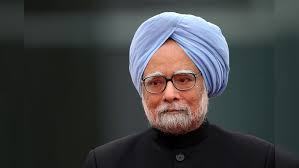The Evolving Financial Planning Landscape in India: Key Insights and Growth Trends

Introduction to the Indian Financial Market
The Indian financial market stands as a dynamic and intricate ecosystem, pivotal to the country's economic narrative. With its vast expanse encompassing equity markets, debt markets, commodities, and derivatives, it plays a crucial role in channeling resources effectively. The presence of major stock exchanges like the NSE (National Stock Exchange) and BSE (Bombay Stock Exchange) has been instrumental in shaping the modern landscape of the Indian market. These platforms are not just trading avenues but reflect the economic pulse of the nation.
For anyone keen on understanding financial planning in India, it's essential to grasp the intricacies of these markets. Over the years, with the growth of the Indian economy, there has been a surge in the participation of retail investors, institutional players, and foreign entities. This influx has added depth and resilience to the market, ensuring that wealth management in India is not just about safeguarding assets but optimizing them for maximum growth.
The Role of Equity Markets: NSE and BSE
Diving into the realm of equity markets, the NSE and BSE are the twin pillars of the Indian financial sector. Together, they facilitate the buying, selling, and issuing of shares, thus enabling capital formation. The NSE, with its advanced technology and innovative trading features, has democratized access for millions, while the BSE, Asia's oldest exchange, has consistently evolved to meet modern-day demands.
The equity market's role in wealth management can't be understated. They offer opportunities for diversification, risk management, and potential high returns. For investors, understanding the dynamics of these exchanges is crucial for informed decision-making. Whether you're a novice investor or a seasoned trader, the breadth of options available in the NSE and BSE ensures that the equity market remains a cornerstone of financial planning in India.
Trends in Wealth Management in India
The wealth management sector in India has witnessed transformative trends, driven by technological advancements and evolving investor preferences. With the growth of the Indian economy, there's been a marked shift towards personalized and holistic financial planning. Today, wealth management in India is not just about investment in traditional assets like stocks and bonds but also includes alternative assets, estate planning, and tax efficiency strategies.
Moreover, digital platforms have revolutionized access to financial services, making it easier for individuals to monitor and manage their portfolios. The rise of robo-advisors, for instance, has democratized access to financial advice, catering to tech-savvy young investors. As India continues its economic ascent, wealth management professionals are increasingly focusing on sustainable and socially responsible investing, reflecting global trends and aligning with the broader goals of the Indian market.
Impact of Economic Growth on Financial Planning
The robust growth of the Indian economy has had a profound influence on the financial planning landscape. As disposable incomes rise, and with an expanding middle class, there's a growing emphasis on structured financial planning in India. This economic boom has encouraged individuals and businesses alike to prioritize wealth creation, asset protection, and legacy planning.
The correlation between a thriving economy and proactive financial planning is evident in the increase of investment in equity markets, mutual funds, and insurance products. Additionally, the government's initiatives towards financial inclusion have played a pivotal role in educating and empowering people, especially in rural and semi-urban areas, to take charge of their financial futures. Therefore, as the Indian market continues to flourish, so does the importance of strategic financial planning.
Future Outlook: Opportunities in the Indian Market
Looking ahead, the Indian market presents a myriad of opportunities for investors and wealth management professionals. With the country's economy projected to grow steadily, driven by technological innovation, infrastructure development, and demographic dividends, the potential for financial growth remains immense.
The equity market, represented by NSE and BSE, is expected to continue its upward trajectory, offering lucrative opportunities for both domestic and international investors. Moreover, the focus on sustainable and green investments is likely to gain traction, aligning with global efforts to combat climate change. As we navigate this dynamic environment, staying informed and agile in financial planning in India will be the key to harnessing the full potential of the market's growth.
In conclusion, while challenges remain, the future of the Indian financial market looks promising. With strategic planning, the right investments, and a forward-thinking approach, stakeholders can capitalize on the burgeoning opportunities in the Indian market.

Budget 2025-26: Key Highlights and Its Impact on Personal Finance

How Manmohan Singh Reformed India’s Economy: A Journey of Transformation
